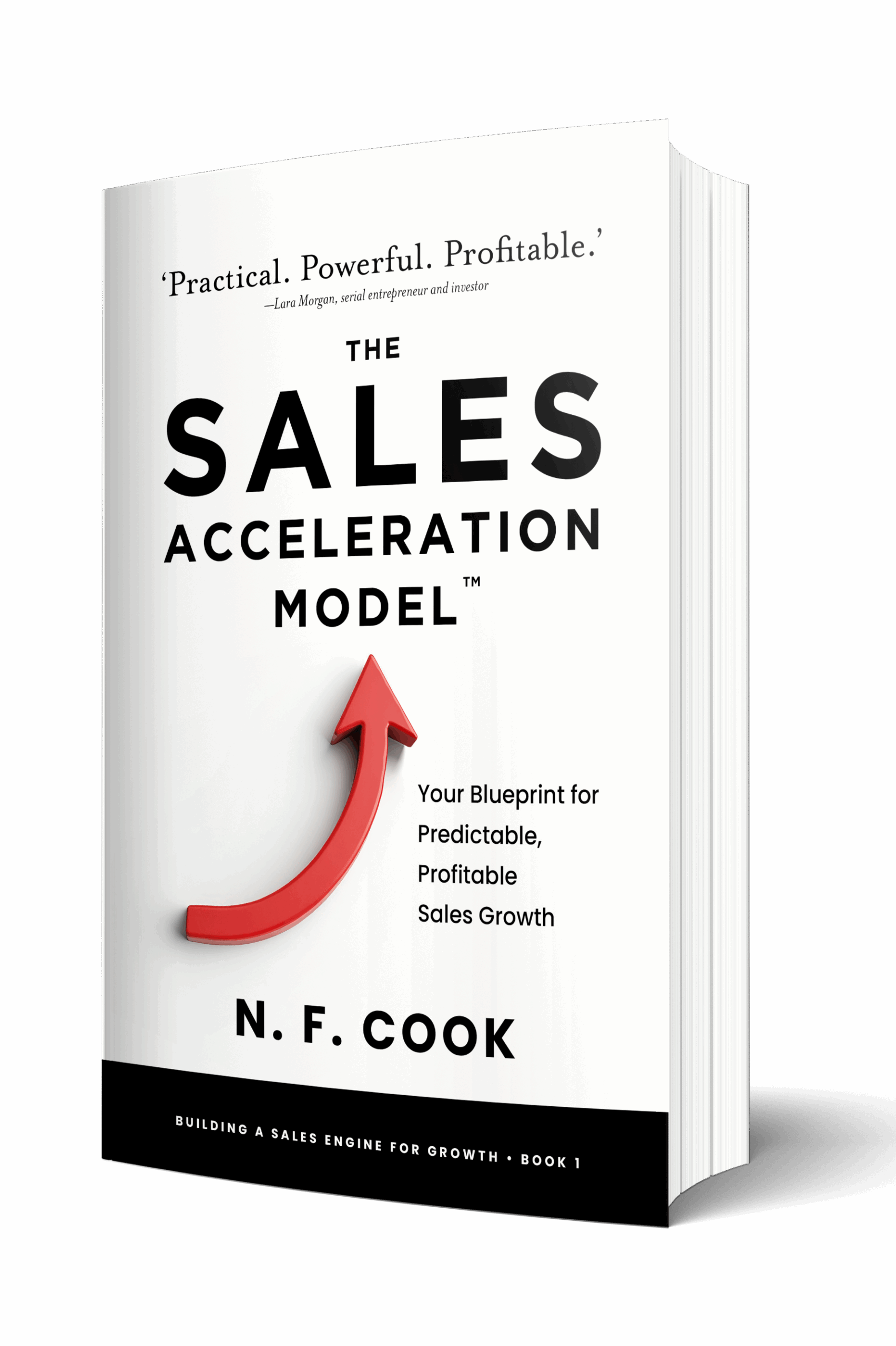After closing, what at the time, was the biggest deal personally in our business Company Shortcuts, I celebrated in such a way that my Chairman responded with:
“But surely you must have had deals of this size before, in your corporate career when you were working for Gucci or P&G”
…and of course I have, so why did this deal feel so different?
I was focused on profit not just revenue and knew what that deal meant before I started the conversation with the customer.
The way I’d been focused previously in my career roles and the way I’d been targeted because of the numbers I’d been asked to deliver on, would have had a massive impact on the profitability of my productivity. Sadly, many businesses fall into this trap and don’t focus their teams on profit.
In my previous corporate sales career the focus primarily had always been on Number of Units Sold. When selling new fragrance launches into some of the biggest UK retailers I, along with my other sales counterparts, were always given an allocation of units (or SKUs) and our job was simply to sell on volume and match the stock sold in against the stock allocation we have been given. Selling stock we didn’t have caused as many headaches as ending up with large volumes of one size product left over, which was always a challenge as often the product came in 3 sizes and retailers obviously wanted higher volumes in the most popular one.
If you’d asked me back in those days, the sales revenue of a deal (never mind the profit margin) I wouldn’t have had a clue.
That information was never shared. I had no idea on the revenue generated for our company, let alone the costs of sale or the direct costs of the business. I did, of course, know the RRPs of my product range, but as I was asked to deliver on Unit Sales – that’s what I did. Madness when I look back now.
Roll forward into other roles in my career and very often I was simply asked to deliver against a Top Line Sales Number, and often we would sacrifice margin to get a deal closed. Again, often because the business I was working for hadn’t costed their services properly or shared that information with me, I was unable to make decisions based on profit. As long as I hit my number I felt I should be suitably rewarded, even if my actions had negative cash flow implications or my deals were loss making – as long as I hit my number.
However you choose to target your teams, is what they will ultimately deliver on.
So when we closed this particular deal in Company Shortcuts, the reason I was on a high is that it was the biggest since I’d started to appreciate the relationship between money at the top and profit dropping through to the bottom line. Whilst running my own businesses for the past 10 years I had lived through the pain of realising the importance of appreciating the relationship between sales, margin, profit and cash. I had experienced the devastating implications of losing focus of any one of these.
What inspired me to write this particular blog is that we see so many other businesses of all sizes from the micro businesses through to the large corporates, where the teams are so detached from Profit Generating Activities that they misdirect their sales teams activity and end up, at best, increasing revenue but not profit, or at worst increasing revenue but to the detriment of profit.
The solution is simple – share this information with the team!
Here are some thoughts on how:
- Give them access to accurate costing’s, so they can understand how to structure a deal without losing margin. A really good excel spreadsheet stored in a shared drive is a good start.
- Target them on both revenue AND margin. Put in place a minimum margin per deal managed by protocols so that if they want to sign something off, below the agreed level, they must seek higher approval.
- Put in place a profit share bonus. I always advocate both individual and team targets & rewards, to create both a cohesive yet competitive team – BUT make sure atleast one of your metrics of success is profit driven.
- Build a culture (so it needs to be constantly communicated) that profit is a result of both increased sales AND reduced costing’s. How can your team help reduce wastage and bring down the cost of sale? You want to reward behaviour, for example, if they choose to take a train home 15 minutes later than planned, after a client meeting, if it saves the business £30 in travel expenses.
- And finally, when you have your annual, quarterly or monthly Team Reviews/Strategy days, make sure you share and celebrate not just increased growth on the topline, but increased profit on your bottom line.
Is Your Sales Team Focused on Revenue or Profit?
We all know that to grow your business into an asset, your focus needs to be on profit, so why not make this everyone’s focus in your business too!
Download our complimentary framework number A3, maximising the value of your business and you’ll see point 1 (of many) is of course PROFIT! A3. Maximising_the_Value_of_the_Business
Visit our Frameworks section on the website to download over 100+ other complimentary frameworks and templates all designed to accelerate the growth of your business.


